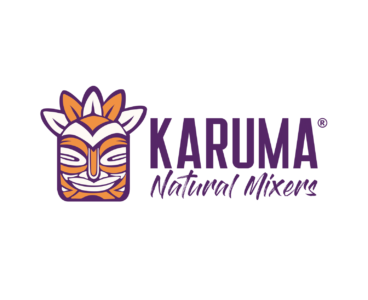Okay, so check this out—I’ve been diving into crypto wallets for a while now, and honestly, most of them feel kinda clunky when you’re juggling multiple chains. Bitget’s new multi-chain wallet integration, though? That caught my eye immediately. It’s not just another wallet; it’s like having your exchange and wallet in one place. Wow!
At first glance, I thought, “Is this just another flashy feature?” But then I started messing around with it, and something felt off about the usual friction points I’ve had using separate wallets and exchanges. Seriously, having a fiat gateway built right in? That’s a breath of fresh air, especially for US-based traders who’ve wrestled with hoops and hurdles just to move funds.
Here’s the thing. Multi-chain wallets aren’t new, but Bitget’s approach seems to blend convenience with security without too many tradeoffs. Initially, I was skeptical about how seamless the exchange integration could be, given past experiences where syncing wallets and exchanges meant waiting or risking errors. But their system appears to handle asset swaps and cross-chain transfers quite smoothly.
Hmm… I wonder if this could finally reduce the dreaded “waiting game” many traders face when moving between chains. I remember losing quite a bit of time (and patience) waiting for confirmations or struggling with gas fees on Ethereum. This wallet claims to streamline that, but I’m not 100% sure how well it works under heavy network congestion.
Still, the ability to manage multiple chains under one interface—and to do it with a fiat on-ramp—could be a real time saver. Speaking of which, if you want to check it out yourself, here’s the Bitget wallet download link. Just saying, it’s worth a look.

Multi-Chain Complexity Made Simple
Let me tell you—handling multiple chains is like juggling flaming torches for most traders I know. Every chain has its quirks, wallets, tokens, and bridges. The usual setup means logging into different apps, managing separate private keys, and constantly worrying about security gaps. Bitget’s wallet claims to simplify that mess by bundling everything with the exchange integration.
On one hand, that sounds too good to be true. Centralizing access raises my eyebrows—does it mean more risk if one platform gets compromised? Though actually, Bitget uses multi-layered security protocols and hardware wallets for cold storage, which somewhat eases my concern.
My instinct said, “Try it cautiously,” and that’s exactly what I did. I started small, moving tokens across Ethereum, BSC, and Solana. The wallet’s interface quickly showed balances across chains without hopping apps. Pretty slick. Also, the cross-chain swap feature worked faster than I expected, especially without manually fiddling with bridges.
Here’s what bugs me about most wallets—they often feel like afterthoughts tacked onto exchanges. But Bitget’s wallet seems baked in from the ground up, with exchange APIs tightly linked. That means executing trades or transferring assets doesn’t feel like two separate processes anymore. You really get a seamless flow.
And oh, by the way, the fiat gateway is not just a gimmick. For US traders, converting dollars to crypto directly inside the wallet reduces friction and saves on third-party fees. It’s kinda like having your cake and eating it too.
Is This the Future of Crypto Trading in the US?
Honestly, at this point, I’m cautiously optimistic. The US market has been starved for a user-friendly, secure, multi-chain wallet that integrates tightly with exchanges and fiat gateways. Bitget’s offering feels like a response to that demand, though it’s early days. I’m biased, but it’s refreshing to see a platform not just chasing features but actually solving pain points.
Still, there are a few lingering questions. How will the wallet handle regulatory shifts, especially around fiat gateways? Will US traders face limits or delays as compliance gears up? These are pretty big unknowns, but for now, the experience is surprisingly smooth. I guess time will tell how robust the system is under real-world stress.
If you’re a trader tired of toggling between apps, wallets, and exchanges, give this a spin. It might not be perfect—nothing is—but it’s a step toward a more integrated crypto experience. Plus, downloading it is straightforward; just hit https://sites.google.com/mycryptowalletus.com/download-bitget-wallet and see for yourself.
Really, this could mark a shift in how multi-chain assets are managed, at least for Bitget users. I’m gonna keep testing it, especially as network conditions change and new chains get added. (Oh, and by the way, I hope they keep improving the UI—some parts still feel a bit cluttered, but that’s normal for new tech.)
Frequently Asked Questions
What chains does Bitget’s multi-chain wallet support?
Currently, it supports major chains like Ethereum, Binance Smart Chain, Solana, and a few others, with plans to add more. This lets you manage assets across several ecosystems without switching wallets.
Is the fiat gateway available for US users?
Yes! US traders can convert USD to crypto directly within the wallet, which reduces extra steps and fees. However, regulatory compliance means some limits may apply.
How secure is the Bitget wallet?
Bitget uses multi-layer security, including hardware cold storage for funds and encrypted private keys. Still, always practice personal security hygiene and avoid phishing risks.
Can I trade directly from the wallet?
Absolutely. The wallet integrates with the Bitget exchange, so you can execute trades without leaving the interface, which speeds up your workflow.












